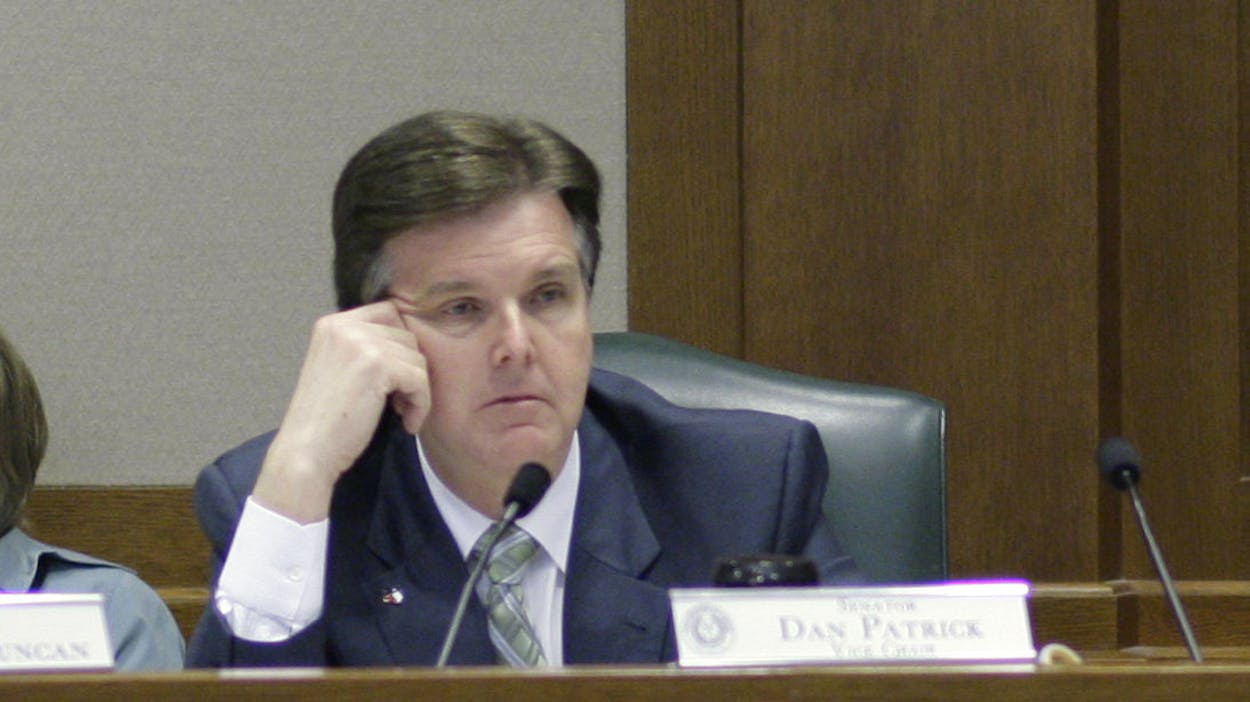The culture wars seemed alive and well in the Capitol on Tuesday. A pair of “fetal pain” bills promoted by Governor Rick Perry were introduced that would ban abortion after twenty weeks of pregnancy. And the Senate Education committee heard testimony on a bill that would bar school districts from using sex education curriculum developed by abortion providers or affiliates. Committee chair Dan Patrick, a Houston Republican and author of last session’s polarizing sonogram bill, seemed to be relishing this chance to revisit this ground.
“The purpose of the bill is to keep those who promote and support abortion out of the schools,” Patrick said. “It’s a really simple bill.” SB521, authored by Sen. Ken Paxton, a Republican from McKinney, requires parents to give written permission for their students to participate in any sex ed taught by an outside educator, a provision that critics say could critically diminish the number of students who receive such instruction.
At times, Patrick veered into mansplaining territory, such as in this exchange, in which the talk show host asked Dr. Janet Realini of the Healthy Futures Alliance how she could oppose the parental permission requirement, a portion of the bill he found particularly uncontroversial. (The new opt-in requirement would be, in Realini’s words, “especially onerous for poor school districts.”)
Proponents of the bill suggested that Planned Parenthood stands to profit from getting students interested in sex. “The abortion providers will make money on the condom, they make money on the morning after pill when the condom breaks, and they make money on the abortion,” said Teri Johnson, the development coordinator at Austin Life Care and a mother of four. “This is a clear conflict of interest. It’s basically like having your primary care physician double as your mortician. He wins either way.”
Others took issue with comprehensive sex education in general. “We teach our children that married sex and only married sex is good sex,” said Renate Sims, a mother of five from Round Rock, who said she would only support “a solid, uncompromising abstinence only” education. But this does not track with how a majority of Texans feel about sex ed: a bipartisan poll released late last month from the Texas Freedom Network revealed that 84 percent of registered voters in the state want students to learn both about abstinence and birth control in school. (Around a fifth of Texas school districts use Worth the Wait, a traditionally abstinence-only program that recently began including “robust” information about contraception for districts that request it.)
But is this a classic bill in search of a problem? Health educators with some affiliation with Planned Parenthood have only provided sex education instruction “in a handful of school districts” in Texas, according to Sarah Wheat, director of Planned Parenthood of Greater Texas. Ann Newman, the author of a book published by Focus on the Family in 1990 titled “Healthy Sex Education in Your Schools,” claimed in her testimony that Planned Parenthood was involved in developing one program in particular, called “It’s Your Game.”
But that claim seems to be without merit. Dr. Susan Tortolero, the director of the Center for Prevention Research at the University of Texas’s School of Public Health, which developed the “It’s Your Game” program for seventh and eighth graders, said Planned Parenthood had no involvement in crafting the curriculum. “Planned Parenthood has had nothing to do with the program at all,” she said. (Previously, Planned Parenthood had sat on one community advisory board for the center.) And the program is effective: two randomized, controlled studies found it “significantly delays sexual initiation” in sexually inexperienced students and reduces the frequency of sexual activity in experienced ones.)
Christine Kalmbach, one of several mothers of children enrolled in Cy-Fair Independent School District who testified Tuesday, disagreed with that assessment. “Comprehensive sex ed like ‘It’s Your Game’ does not work. It bombards our children with a sexual agenda,” she said. “Risk avoidance is the most effective strategy.” While the Cy-Fair parents have gone so far to even create a website railing against the program, Tortolero said that they have not received complaints from the 14 other school districts using the curriculum.
Kathy Miller, president of the Texas Freedom Network, said that bill, which requires parental permission for any outside educator to teach sex ed, would put “serious hurdles in the way of sex education that’s been offered in a number of school districts,” as some 50 percent of districts rely on outside vendors to teach such classes. Plus, the bill, co-authored by Donna Campbell (R-New Braunfels) and Eddie Lucio (D-Brownsville) “thwarts the local control” that school districts currently have to select sex ed curriculum that meets the particular needs of the district, Miller said.
State statute requires every school district to receive guidance on which health education program to adopt from a School Health Advisory Council (SHAC) made up of local citizens. Jim Kaufmann, a member of Waxahachie ISD’s SHAC, stressed the importance of taking a holistic approach to sex ed: “If we really want to stop abortion, we need to stop unplanned pregnancies,” he said, adding that there are two kinds of kids in the school system: “Kids that we can sell on the idea of waiting to have sex, and then there’s the other kind. We can’t turn our backs on either set of them,” he said.
- More About:
- Politics & Policy







